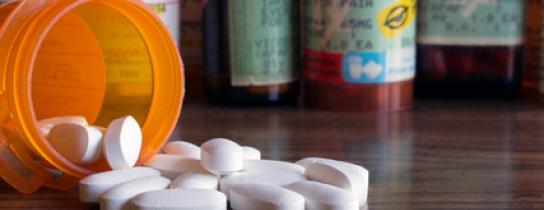
When the Opioid Epidemic and the COVID-19 Pandemic Collide
When it comes to a national opioid epidemic and a global pandemic, two negatives do not make a positive. Approximately 48,000 people in the US lost their lives to opioids in 2018. As of today, over 128,000 individuals have succumbed to COVID-19. Data from local governments suggests that the Hudson Valley region will reach the same number of opioid-related deaths as in previous years.
Fortunately, the number of opioid overdoses in some areas of the country according to the National Institute on Drug Abuse is currently trending down. This may be in part because health care facilities are now more conscious of the risks that even a short prescription of opioids carries. Facilities across the country have been cutting down on opioid prescriptions and turning to alternative treatment options. Another emerging trend that’s becoming a concern for providers is the increase in methamphetamine addiction. We’re not completely sure why methamphetamine addiction is increasing – it may be in part because it’s easier to get in the community and it’s cheaper than other drugs.
Substance use disorders (SUD), in particular opioid use, are uniquely challenged by social distancing and isolation orders. Research shows that isolation and neglect increase the use of drugs and heightens the risk of relapse. Most of the models of recovery rely on peer support, face-to-face interactions with treatment providers, and Medication Assisted Treatment. During the pandemic, access to vital services have been restricted because of clinics limiting the number of new patients, providers temporarily not holding treatment sessions, and mobility barriers preventing access to pharmacies and treatment facilities.
To offer much-needed support during the pandemic, the substance use treatment community is embracing Telehealth as a way to eliminate access barriers. Support systems once based on face-to-face interactions are now available virtually. Narcotics Anonymous groups are now available 24/7 on the web. In our region, the Peer Support RX app provides a real-time connection to a peer in recovery right in your community. Group therapy is transitioning from a brick and mortar building to a virtual meeting room on platforms like Zoom. In addition, the federal government has eased restrictions on Medication Assisted Treatment by allowing initial evaluations to be conducted via Telehealth instead of in-person and increasing the quantity limits of take-home dosing for patients on Methadone.
By enhancing and restoring substance treatment options and promoting connectedness to one another, our region will continue to persevere during these challenging times. If you’re struggling with SUD, help is available. Contact Crystal Run Healthcare to make an appointment with a behavioral health specialist today.
Additional resources available in the Hudson Valley:
- Orange County: http://www.namiorangeny.org/substance-abuse.html
- Sullivan County: https://guides.rcls.org/c.php?g=128735&p=839386
- Rockland County: http://rocklandgov.com/departments/mental-health/chemical-dependency-pro...
Nicholas Batson, MD is a Board-Certified adult, child, and adolescent Psychiatrist and earned his Medical Degree at American University of the Caribbean School of Medicine in Coral Gables, FL. He completed his Residency in Psychiatry at Wake Forest University Baptist Medical Center in Winston-Salem, NC and Fellowship-training in Child and Adolescent Psychiatry at University of Louisville in Louisville, KY. Dr. Batson is seeing patients in Middletown and West Nyack as well as through Virtual Telehealth appointments.

 Optum Radiology at Crystal Run Healthcare
Optum Radiology at Crystal Run Healthcare Same and next-day pediatric appointments
Same and next-day pediatric appointments